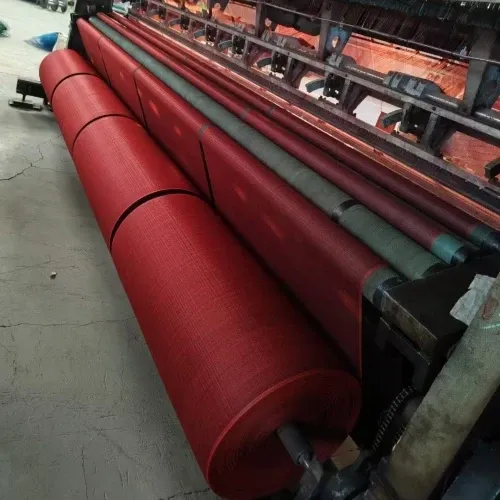-
 Afrikaly
Afrikaly -
 Alban
Alban -
 Amhar
Amhar -
 Arapça
Arapça -
 Ermeni
Ermeni -
 Azerbaýjan
Azerbaýjan -
 Bask
Bask -
 Belarus
Belarus -
 Bengali
Bengali -
 Bosniýa
Bosniýa -
 Bolgar
Bolgar -
 Katalan
Katalan -
 Sebuano
Sebuano -
 Hytaý
Hytaý -
 Korsikan
Korsikan -
 Horwatiýa
Horwatiýa -
 Çeh
Çeh -
 Daniýaly
Daniýaly -
 Gollandiýaly
Gollandiýaly -
 Iňlis
Iňlis -
 Esperanto
Esperanto -
 Eston
Eston -
 Fin
Fin -
 Fransuz
Fransuz -
 Frizian
Frizian -
 Galisiýa
Galisiýa -
 Gürji
Gürji -
 Nemes
Nemes -
 Grek
Grek -
 Gujarati
Gujarati -
 Gaiti kreoly
Gaiti kreoly -
 hausa
hausa -
 hawaiian
hawaiian -
 Hebrewewreýçe
Hebrewewreýçe -
 .Ok
.Ok -
 Miao
Miao -
 Wenger
Wenger -
 Islandiýa
Islandiýa -
 igbo
igbo -
 Indoneziýaly
Indoneziýaly -
 irish
irish -
 Italýan
Italýan -
 Japaneseaponlar
Japaneseaponlar -
 Javaneseawan
Javaneseawan -
 Kannada
Kannada -
 Gazak
Gazak -
 Khmer
Khmer -
 Ruanda
Ruanda -
 Koreýçe
Koreýçe -
 Kürt
Kürt -
 Gyrgyzystan
Gyrgyzystan -
 Inçekesel
Inçekesel -
 Latyn
Latyn -
 Latwiýa
Latwiýa -
 Litwa
Litwa -
 Lýuksemburg
Lýuksemburg -
 Makedoniýa
Makedoniýa -
 Malgaşi
Malgaşi -
 Malaý
Malaý -
 Malaýalam
Malaýalam -
 Malta
Malta -
 Maori
Maori -
 Marathi
Marathi -
 Mongol
Mongol -
 Mýanma
Mýanma -
 Nepali
Nepali -
 Norweg
Norweg -
 Norweg
Norweg -
 Oksitan
Oksitan -
 Puştun
Puştun -
 Pars
Pars -
 Polýak
Polýak -
 Portugaliýa
Portugaliýa -
 Penjabi
Penjabi -
 Rumyn
Rumyn -
 Rus
Rus -
 Samoan
Samoan -
 Şotlandiýaly Gael
Şotlandiýaly Gael -
 Serb
Serb -
 Iňlis
Iňlis -
 Şona
Şona -
 Sindhi
Sindhi -
 Sinhala
Sinhala -
 Slowakiýa
Slowakiýa -
 Sloweniýa
Sloweniýa -
 Somali
Somali -
 Ispan
Ispan -
 Sundanese
Sundanese -
 Suwaýili
Suwaýili -
 Şwesiýa
Şwesiýa -
 Tagalog
Tagalog -
 Täjik
Täjik -
 Tamil
Tamil -
 Tatar
Tatar -
 Telugu
Telugu -
 Taý
Taý -
 Türk
Türk -
 Türkmenler
Türkmenler -
 Ukrain
Ukrain -
 Urdu
Urdu -
 Uýgur
Uýgur -
 Özbek
Özbek -
 Wýetnamly
Wýetnamly -
 Uels
Uels -
 Kömek ediň
Kömek ediň -
 Yiddishahudy
Yiddishahudy -
 Yorubaoruba
Yorubaoruba -
 Zulu
Zulu
Various Types of Anti Hail Nets
Hail net is a kind of protective net used to resist hail disaster in agricultural production. It is usually made of high-strength polyethylene (PE), polypropylene (PP), nylon and other materials. These materials not only have good weather resistance, but also can effectively disperse the impact of hail and protect crops from direct damage from hail. The structure of salam is usually grid-shaped, which can provide a kind of "barrier" protection for farmland under extreme weather conditions such as strong wind, heavy rain and hail.

Design Concept of Anti Hail Netting
The design concept of salam is based on the principle of physical protection, that is, through physical isolation or dispersion, the energy of hail can be effectively slowed down or transferred, thus reducing its damage to crops. At the same time, the salam has light and air permeability, and will not have adverse effects on the normal growth of crops.
Types of Anti Hail Nets
According to different agricultural production needs and use scenarios, there are many types of doň garşy tors, which can usually be classified according to the following standards:
According to the material classification
Polyethylene (PE) salam: PE is a common material for hail protection net, which has excellent tensile strength and weather resistance. Polyethylene doň garşy tor is economical and widely used, which is suitable for the protection of most crops.
Polypropylene (PP) salam: Polypropylene hail protection net has high anti-aging performance and ultraviolet resistance, and is suitable for areas with high temperature and strong light. In addition, the polypropylene doň garşy tor is light in weight and easy to install and maintain.
Nylon salam: Nylon salam has very good tensile strength and elasticity, and is suitable for extreme weather conditions such as strong wind and heavy rain. Nylon hail screen has good flexibility and can withstand strong impact, but its price is relatively high.
Classification by mesh size
Large-hole doň garşy tor: this net has a large aperture and is suitable for the protection of crops with high light demand such as greenhouse planting and orchard. Large-hole doň garşy tor can effectively prevent hail from entering, and at the same time ensure that crops can get sufficient sunlight.
Small-hole doň garşy tor: The mesh structure of small-hole doň garşy tor is dense, which is suitable for preventing the influence of small hail or sandstorm and other environmental factors. This kind of net is mainly used in areas with large sandstorm and small hail, and is also suitable for protecting some fragile crops.
According to the protection intensity classification
Light salam: It is suitable for mild climatic conditions and can effectively block the impact of small and medium-sized hail. Light doň garşy tor is usually low in price and suitable for large-scale planting.
Heavy-duty salam: This net is thicker and stronger, which is suitable for hail and windy weather. Heavy-duty hail screen is usually used in high-risk areas and can withstand strong impact.
-
The Sunshade Net Can Block Ultraviolet RaysHabarlarAug.11,2025
-
Main Application and Technology of Nylon ScreenHabarlarAug.11,2025
-
Green Anti UV Sunshade Net: The Perfect Combination of Ecological Friendliness and Practical PerformanceHabarlarAug.11,2025
-
Explore the Sunshade NetHabarlarAug.11,2025
-
Application and Development of Nylon Screen in Fuel Processing and TreatmentHabarlarAug.11,2025
-
Application and Advantages of Nylon Screen for AquacultureHabarlarAug.11,2025











